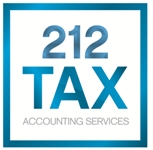When it comes to tax help in New York City, few are as qualified and as experienced as Armel Tax in helping businesses take the stress and hassle out of complicated tax issues. We try to make this blog a helpful resource for those who need plain English answers to tax and accounting questions that often can be quite complex.
This month we hope to decrypt some of the confusion surrounding S-Corporations and what the I.R.S. considers reasonable compensation for officers of S-Corps.
An S-Corporation, as defined in Subchapter S of the Internal Revenue Code, is a corporation whose shareholders make the choice to absorb profits and losses (and the associated tax implications for both) on their personal income tax returns. As an entity, the S Corp pays no federal income tax.
Many have referred to S-Corporations as “pass-through” entities because the tax burden passes through to the individual shareholders who are then able to either pay taxes on profits earned, or attempt to claim credits based on losses. In the right context, this is a beneficial strategy, especially during the “start-up” phase of your business.
If you have specific questions about whether your business qualifies, contact Armel Tax today. However, one of the most common questions about S-Corporations is what makes up reasonable or proper compensation for officers of an S-Corporation.
For an S-Corporation, it is likely that the I.R.S will want to talk to you if you file an 1120S tax return with a zero showing on the line for “Compensation of Officers.” The I.R.S. knows that nobody works for free and therefore has mandated that officers of the corporation must receive compensation. An officer of an S-Corp doesn’t have to pay themselves a high-salary, but it must be “reasonable” by the standards of the I.R.S.
In order to meet the “reasonable” standard, compensation for shareholder-employees should be determined using the same criteria as salary for non-shareholders. This could mean taking into account comparable salary for officers in similar positions around the industry, amount of hours worked, level of knowledge and ability, etc.
A good rule of thumb to determine a reasonable compensation is to ask yourself if a non-shareholder would be willing to accept the shareholder’s responsibilities at the proposed salary level. This means the salary cannot be zero and cannot be below the minimum wage. However, it is also unwise for an S-Corp to attempt to grossly overpay an officer to increase business expenses.
Because Armel Tax is a New York City C.P.A. firm, we would like to disclose that NYC corporate tax rates usually result in an S-Corp not being the most tax efficient entity type for start-ups in the City.
As always, it is best to work with a certified public accountant to navigate these issues. Contact Armel Tax today for your free consultation!
Request a Consultation
We are able to work with your unique schedule including after-hour appointments, most weeknights, and weekends.
Call to action
Build Growth Opportunities with Extensive Business Financial Services
We serve clients in a range of industries, including hospitality, nightlife, real estate, legal, and medical.


